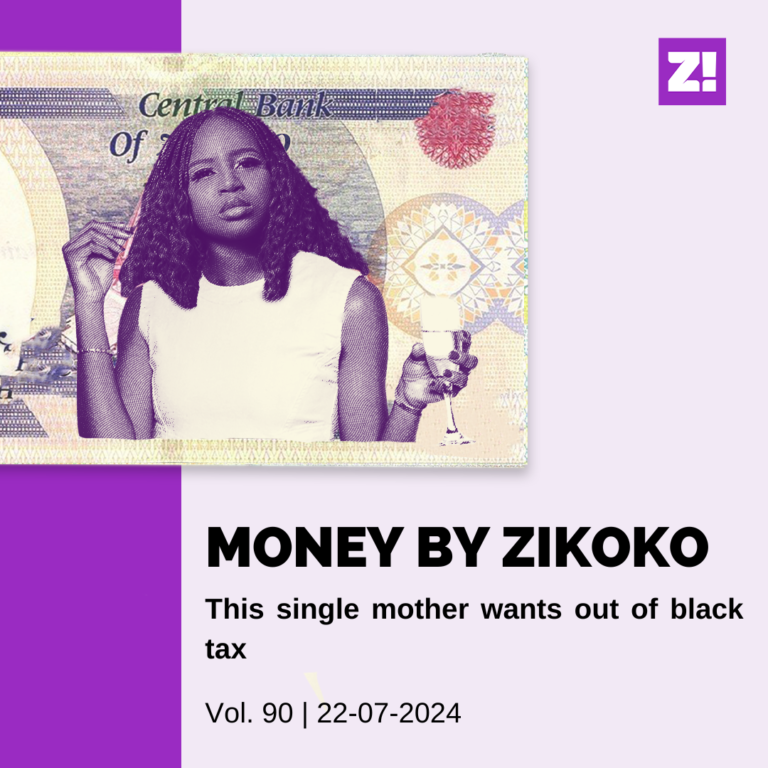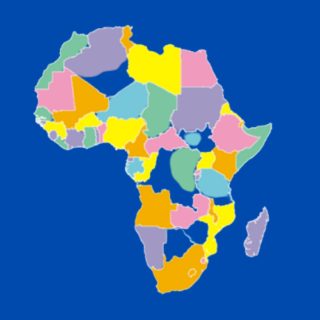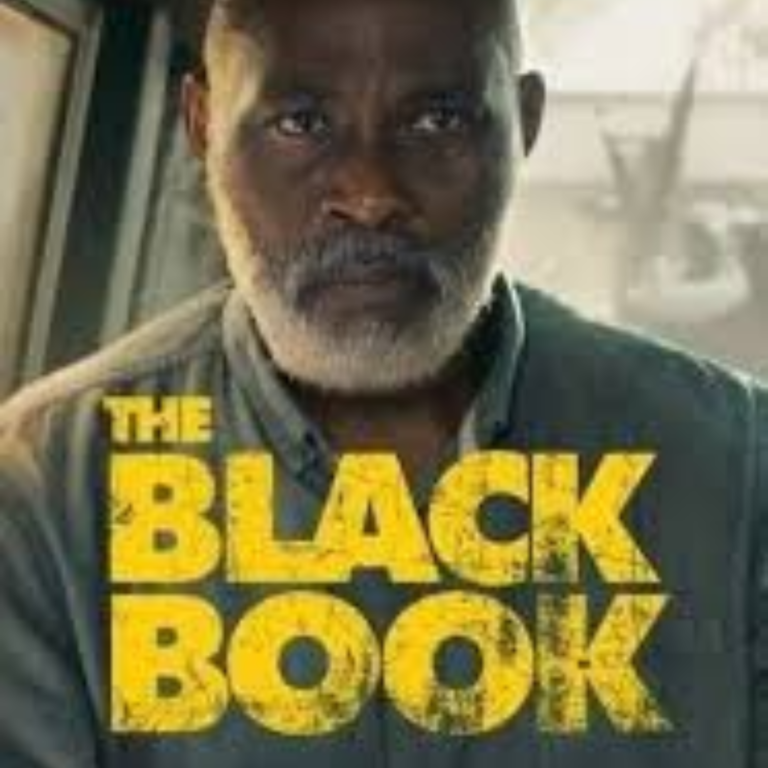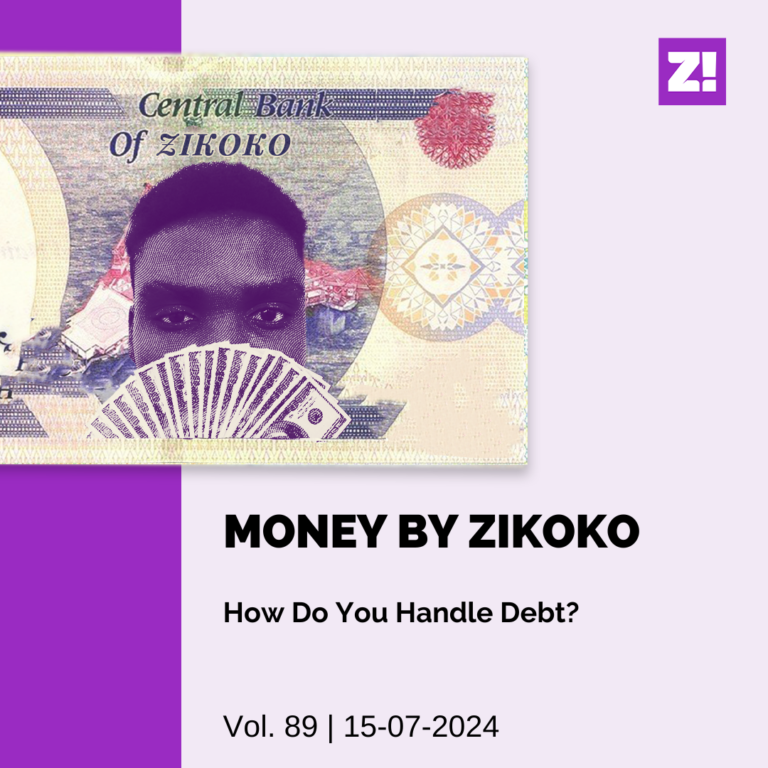Every two weeks, Zikoko will share the hustle stories of Nigerians making it big in and out of the country. With each story, we’ll ask one crucial question in several ways: “How you do am?”
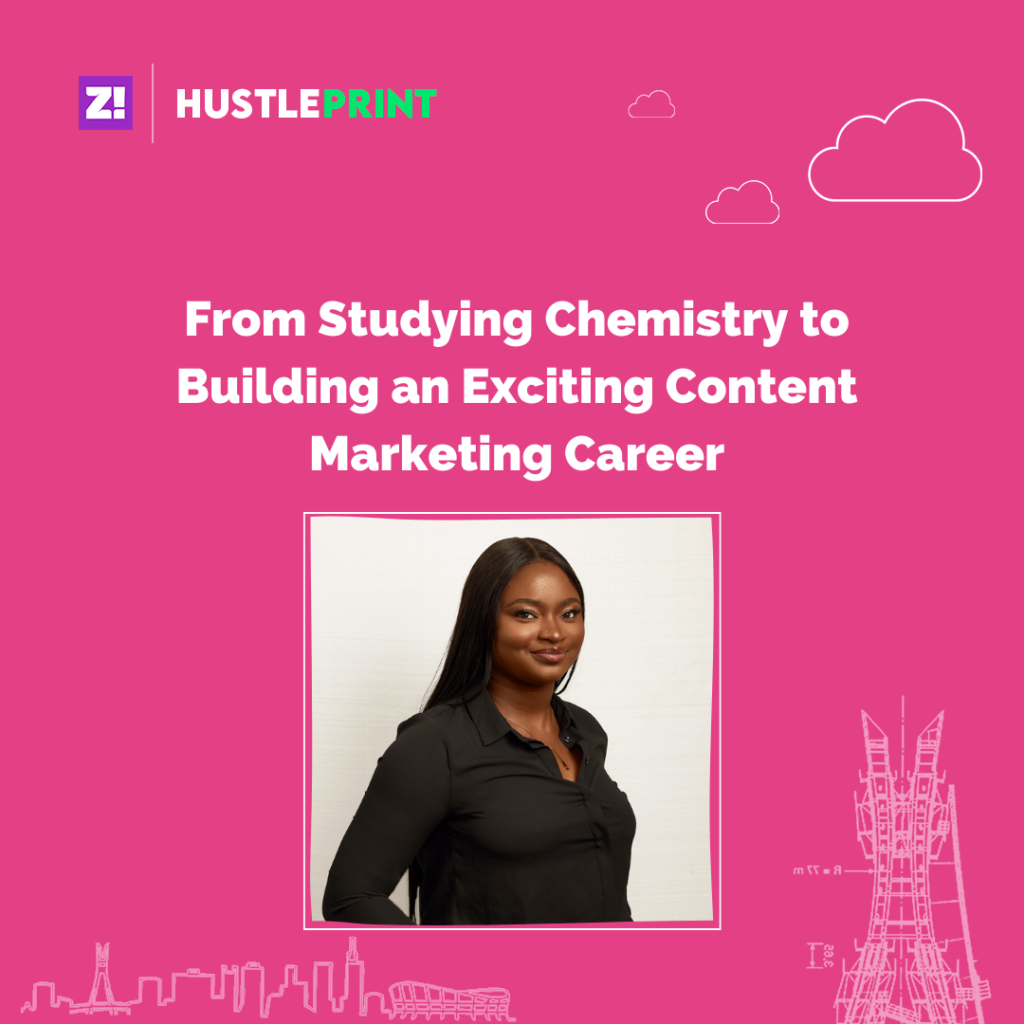
Let’s take it to the beginning. What do you imagine led you to marketing?
Curiosity.
Let me explain: I studied chemistry in university, and it was a fallback course — I’d wanted to study medicine.
During a long day at the lab in my second year, a friend complained about how much work she had to do for managing her clients’ social media accounts. Naturally, I was confused. It’d never occurred to me that people were paid to handle social media accounts.
But I also got incredibly curious and asked her to tell me more about it. By the end of our conversation, I was very fascinated by what she told me. I had one question in my mind: “Why can’t I do this as a job too?”
Did you have an answer?
The closest thing to an answer was the realisation that while I liked social media and could find my way around most platforms, I didn’t have the skills I needed to use them for work. Now, I knew I had a chance to change this and was convinced that I’d unlock something out of it.
When I returned to my hostel, I got down to business and started doing heavy research on social media management. This effectively kicked off the learning phase in 2017.
Energy! How did you approach the learning phase?
I didn’t overthink it. I took any course that was available and free. The first course I signed up for was the Shaw Academy digital marketing course. Then others followed.
The knowledge acquisition phase was relatively easy, thanks to my curiosity and interest.
However, a lot of it was unstructured. Nevertheless, I was intentional about taking courses that give certificates upon completion — I thought they were proof of knowledge until I realised I’d learn and scale faster if I had proof of work.
Thankfully, my sister had an event management company, and her business became my playing ground.
Tell me more about that
My sister got her clients through word of mouth, and she was good with that. Her business’s social media presence, on the other hand, was dead.
I decided to change that.
In practice, this meant I worked with her to bring her services online. I created accounts for her business on all platforms and managed and grew them.
Although the work was pro bono, it did something for me: if I learned something new, I tested it with the business’s accounts as part of my various experiments and see what stuck. Also, my work here landed me my first marketing job. I got a social media marketing internship at an agency.
I’m curious. How did you decide it was time to try something different?
My curiosity got bigger the more I learned about social media marketing. Also, I believed I’d gotten good enough to make some money out of everything I’d learned — the amount didn’t even matter.
Fair enough. What specific steps did you take to land the internship?
I scoured social media platforms. I’d go on Instagram and search for #Socialmediajobs and similar hashtags to find open roles. A random search led me to the digital agency that eventually hired me.
I worked at the agency for three months, and one of my biggest lessons from the experience was that it’s okay to be a little selfish about your growth.
The agency wasn’t very structured. I learned a lot about how to use social media when I worked there, but it didn’t take long before I felt I needed something more challenging. I went for it and quit.
A few weeks later, I got another internship at a digital agency called Webcoupers. This was my boot camp.
How so?
Webcoupers had more structure and worked with bigger clients. As a result, there was a lot to do, and I was there to take it all in. For example, I was primarily a social media intern, but I did everything connected to digital marketing — from email marketing to influencer marketing and creative ad development.
Additionally, this was the first time I saw what a career in any area of digital marketing could look like, and I liked what I saw. When I left the agency six months later, I knew I was all in. I’d even started freelancing on the side and making extra money.
Now, the next step was figuring out how to put myself out there.
Sweet. On what path did this lead you?
After Webcoupers, I focused on school for a bit — I was in my final year and working on my project — before starting a full-time role at CKDigital, another digital marketing agency. I was hired as a social media specialist and my starting salary was ₦70k.
I don’t know how best to explain it, but it was a really big deal because it showed me I’d open up a clear route to growth and all I needed to do now was to keep honing my skills. In only two years, I’d gone from not knowing what to do with my chemistry degree to finding what I was good at and excited about.
It was reassuring. Wasn’t it?
Yeah. Almost unbelievable, too. But I consistently did my part as well: I threw myself into the work and talked about my processes. You hardly get it wrong with these combinations.
What happened after?
I worked there for three months. By the time I finished my final year project in December 2018, another wave of discontent had set in. Like that, I started searching for another role and found a digital content associate role with SheLeadsAfrica. I resumed work in January 2019.
How was this different from your previous roles?
My role transcended just growing social media accounts. Now I was doing more thinking about how to use content to drive value for the business and its community. Fundamentally, this was my transition from social media marketing to content marketing.
I only worked here for about three months, though.
Let me guess: You found another opportunity
I did. I knew I wanted to work there from the moment I read the job description. I was convinced that I was the one they were looking for.
I guess I was right because I got the job. In April 2019, I started working at Carbon as a digital content marketer.
And it keeps getting better
Haha. I joined the business seven days before a massive rebrand. The company was changing its name from Paylater to Carbon. I was given a heads-up during the hiring process, but now that I was in, I had to get down to work immediately and make sure that the rebrand went on as planned.
On my first day, we didn’t have any marketing materials we needed for the rebrand, so there was a lot to do in my first week. The whole week was pretty much identifying the gaps that existed and moving quickly to plug them.
What was your biggest takeaway from this experience?
If I took anything away from my first week, it was that the best way to navigate being a marketer is putting your head down and doing the work. To put this in context, I didn’t have the luxury of time to understand the product or Carbon’s customers before owning the marketing aspects of the rebrand. But two things helped me pull it off: asking questions and taking feedback — and I explored these because I was determined to do the work no matter what it took.
I stan
You see, being open-minded and excited about work makes a lot of difference. I was just happy to be there, and it influenced the way I approached my work during my almost two-year stint there.
Fast forward to 2020, Covid-19 happened, ushering the start of remote work. At the time, I was living with a friend who had just started freelancing with Toptal. Then she started talking about working for this foreign client and earning in USD. I was like, “Huh. I can do this as a marketer and want this for myself, too.”
I imagine that spurred you into action
Absolutely. Interestingly, I was in a few talking stages with Nigerian companies, but now that my sights were set elsewhere, I wasn’t committed to the process anymore.
As with everything else I’d done up until that time, I kicked things off with research. But when it came to applying for jobs I was qualified for, I wasn’t prepared for how difficult the process was.
What do you mean?
In the beginning, I was automatically getting rejected because I lived in Nigeria. If I made it past the first or second stage, I’d get axed in the third stage.
I was even close to getting one until the company ghosted me. I’d done and aced the interview. The same for the assessment tests. The only thing left was an offer, and they never got back to me.
Do you remember how that felt?
It hurt, but the show had to go on. That said, it was tiring researching, applying and interviewing all the time. So, I had to figure out how to refine my process and keep iterating, which meant paying attention to what was working and what wasn’t.
What did this look like in practice?
I was asking the companies that rejected me for feedback, and I used whatever information I got to optimise my resume and portfolio.
Also, I became very specific about the companies I was sending applications to. One of my earliest mistakes was applying to any “remote” company — some companies say remote, but they mean remote US or remote EU and won’t hire anyone who isn’t from these regions.
I stuck to doing my part and putting myself in the faces of people who might consider hiring me. Eight months after I sent my first application, I got an offer from Wizeline — a software company headquartered in Mexico — to join their team as a content marketing manager.
I should add — applying for roles is a job in itself; you get better the more you do it. I know this from experience.
Back to Wizeline.
Working with the company opened up a path to relocating to Mexico.
I’m really curious about how this happened
EndSARS happened. On the 21st of October, 2020 — a day after the shootings — I was on the phone with a friend in Canada, and I told her that I needed to take a break from Nigeria. We spent the whole morning looking at digital nomad visas and found Mexico on the list.
I wasn’t sure that the company would be willing to relocate me, but my friend urged me to ask. And when I eventually mentioned it to my manager, it was a joke. But she took it up with the People team and next thing, they were scheduling immigration calls, discussing the process and filing the documents. A few months later, I got a new offer to work for Wizeline Mexico.
I took a pay cut, though.
Why?
When I was in Nigeria, I was earning in USD. However, the move to Mexico meant the business would pay me in the local currency, which was still a lot stronger than the Naira — just not as strong as the USD. Nevertheless, it was still a good deal.
I moved to Mexico in May 2021. A year later, I relocated to the UK via the Global Talent visa route.
Wait a minute. How?
In December 2021, I went on holiday to the UK and spent some time with some friends. I realised on this visit that while I loved Mexico, there were a couple of things it couldn’t give me. On top of that list is a community and access to very specific things I needed. For context, I lived in Guadalajara and had to go to Mexico City to find Nigerian meals or a hairdresser who knew what to do with my hair.
When I considered all of this, London seemed like a good next move.
But how did you get the global talent endorsement?
When I got back to Mexico, I started working on my application and compiling my documents. It felt like a culmination of my entire career — I had to talk about my career and the impact I’d made in and out of work: from the work I’d done, the events I’d spoken at to the people I’d mentored. Everything mattered.
The difference between someone who gets the endorsement and someone who doesn’t is in how well they can prove the work they’ve done. But also, you can’t prove something that doesn’t exist. Over the years, I’d done everything I needed to get the Visa, so I got it.
In May 2022, I moved to the UK.
Phew. What was happening on the work front?
I’ve worked at two jobs since the move to the UK. Between June 2022 and May 2023, I did content marketing for an insurtech company. But I started to feel like I wanted to work in an industry that was more aligned with my interests. So I left my role and found a new one. Since July, I’ve been managing content marketing at PhotoRoom — an AI-powered photo editing software company.
You’ve had quite a journey. What’s one thing that prepared you the most?
Once I got a handle on the technical side of content marketing and decided I was in it for the long haul, I made it my life’s work to build a global career. I stopped seeing my work through a local lens — I didn’t want my work to be great by Nigerian standards; I wanted it to be great, period. This framing changed everything and helped me refine how I thought about my work.
I won’t lie; taking available opportunities and getting the best out of them have also been pivotal to my growth. It’s why one of my core interests is helping people find these opportunities through a community I launched — Smarketers Hub.
I’m listening
When I started my marketing career, there weren’t as many communities then as there are now. So before I worked in organisations where I had senior leaders to guide me, I had to figure out a lot of things alone.
It doesn’t have to be that way for everyone else.
The idea to start a community came in 2018, and it launched for the first time in 2020 and the second time in 2022. A small team manages the community, but the job to be done is to help marketers upskill and position themselves for great opportunities.
You’ve gone from figuring things out on your own to helping others figure things out
It’s quite something, isn’t it?
It is. Last question, What do you find most exciting about your career in digital marketing
My career has been wildly unpredictable. It’s so exciting because it keeps me open-minded about every moment. Also, there’s much to do and explore, so there’s always some new growth milestone to hit, especially if you’re as curious as I am.
It makes sense because my curiosity led me down here in the first place.
Hustleprint stories drop every two weeks on Tuesdays at 12 p.m. WAT, and Hustleprint guides will drop in the interim weeks.
So you can follow each drop, Hustleprint will be published in our money newsletter.

